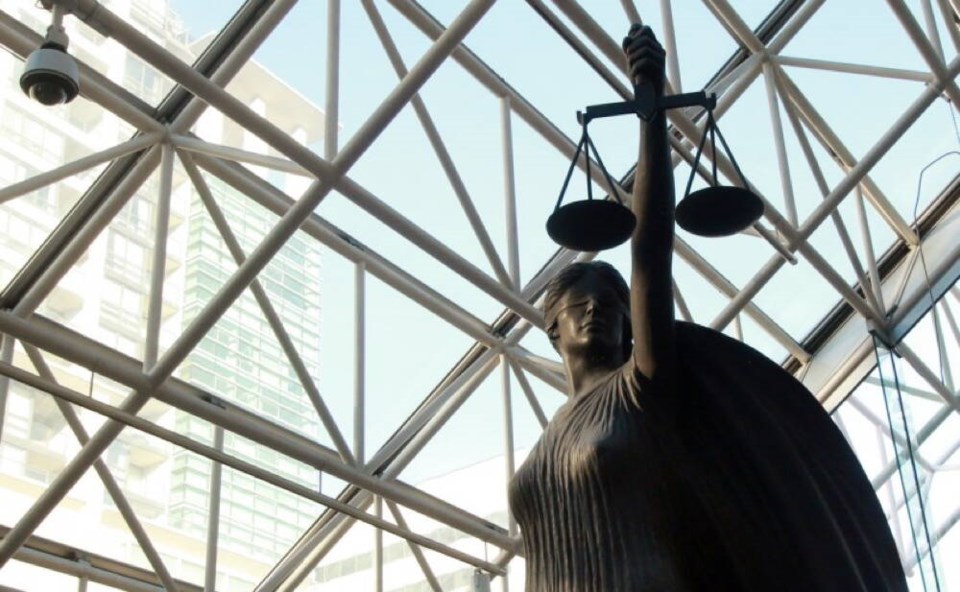A coroner’s jury has found that the fatal shooting of Aaron Lee Prince by two Oceanside RCMP officers six years ago was a homicide, and recommends annual crisis-intervention and de-escalation training for RCMP officers and the increased use of non-lethal Tasers.
Prince, a 35-year-old heavy machinery operator, son, father, brother, uncle and friend, died on Oct. 12, 2017 from multiple gunshots after a violent struggle with officers in the 3900-block of the inland Island Highway.
According to the B.C. Coroners Service, the jury’s homicide classification means Prince died from injuries intentionally inflicted by the action of another person. Homicide is a neutral term that does not imply fault or blame, it said. The verdict of the seven-member jury was unanimous. Their seven recommendations will be sent to the chief coroner.
The inquest, held for four days at the Nanaimo Law Courts, heard that Prince had been brought into the emergency department in Nanaimo by the RCMP two days before his death because he was seeing things that weren’t there.
On the early morning of Oct. 12, he stabbed himself in the chest at the home of his friend David Poole. Poole called 911 and started driving Prince to meet an ambulance at an intersection of the highway. When they arrived, Prince jumped out of the car and started running in and out of traffic.
Concerned Prince might still be in possession of a knife, B.C. Ambulance called police to ensure the scene was safe for them. The officers arrived and tried to handcuff Prince, who resisted and began fighting with them.
The Independent Investigations Office of B.C. found the use of force by the officers was justifiable.
The jury’s first recommendation was for inquests be held in a timely manner, as soon as possible after a death. The jury found that the evidence from witnesses was less reliable after a six-year lapse. No reason has been given for the delay.
The jury also called for improved communication and clarity between the RCMP and Emergency Health Services for restraint use for persons at risk of harm to themselves or others in order to transport them to an appropriate facility. The jury noted that evidence from the RCMP about the need to handcuff patients before they are transported to hospital was contradicted by B.C. Ambulance.
The jury called upon the Ministry of Health and the Ministry of Public Safety and Solicitor General to expand the inclusion of a mental-health clinician on RCMP mental-health calls province-wide. The jury heard that the officers were acting alone and did not have a mental-health clinician present on this call. On Friday, use-of-force expert Mike Massine testified that use of mental-health clinicians improves outcomes in similar situations, the jury noted.
The jury also called for increased use of Tasers — conducted energy weapons — as a non-lethal method of controlling a person. Massine testified that Tasers are a highly effective intermediate weapon. The inquest heard that one of the officers tried unsuccessfully to subdue Prince with his Taser. Two prongs of the Taser were found in Prince’s fleece. They had not penetrated his skin.
The jury’s recommendation for annual crisis and de-escalation training for the RCMP was based on Massine’s evidence that officers receive this training every three years.
All physicians in B.C, particularly those working in emergency rooms, should have enhanced training in sensitivity to and treatment of mentally ill patients, the jury said.
Two days before Prince’s death, an emergency physician found he was not psychotic or suicidal, despite testimony that he was showing signs of psychosis and distress, the jury noted.
Finally, the jury recommended that 911 dispatchers tell a caller to stop driving, instead of allowing them to continue to travel while in distress or in potential harm’s way. Poole should have been instructed to pull over while emergency services came to them, the jury found.



